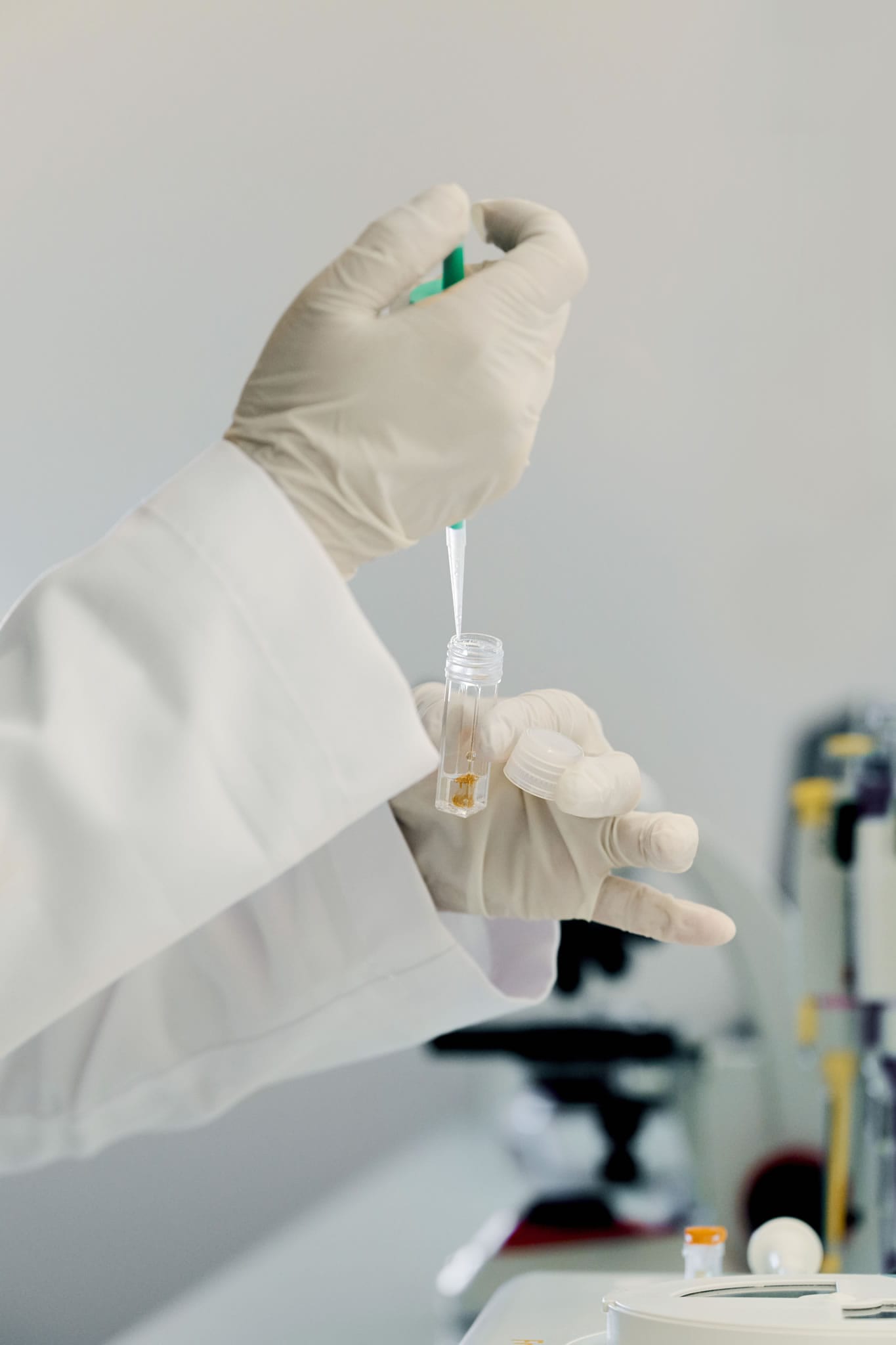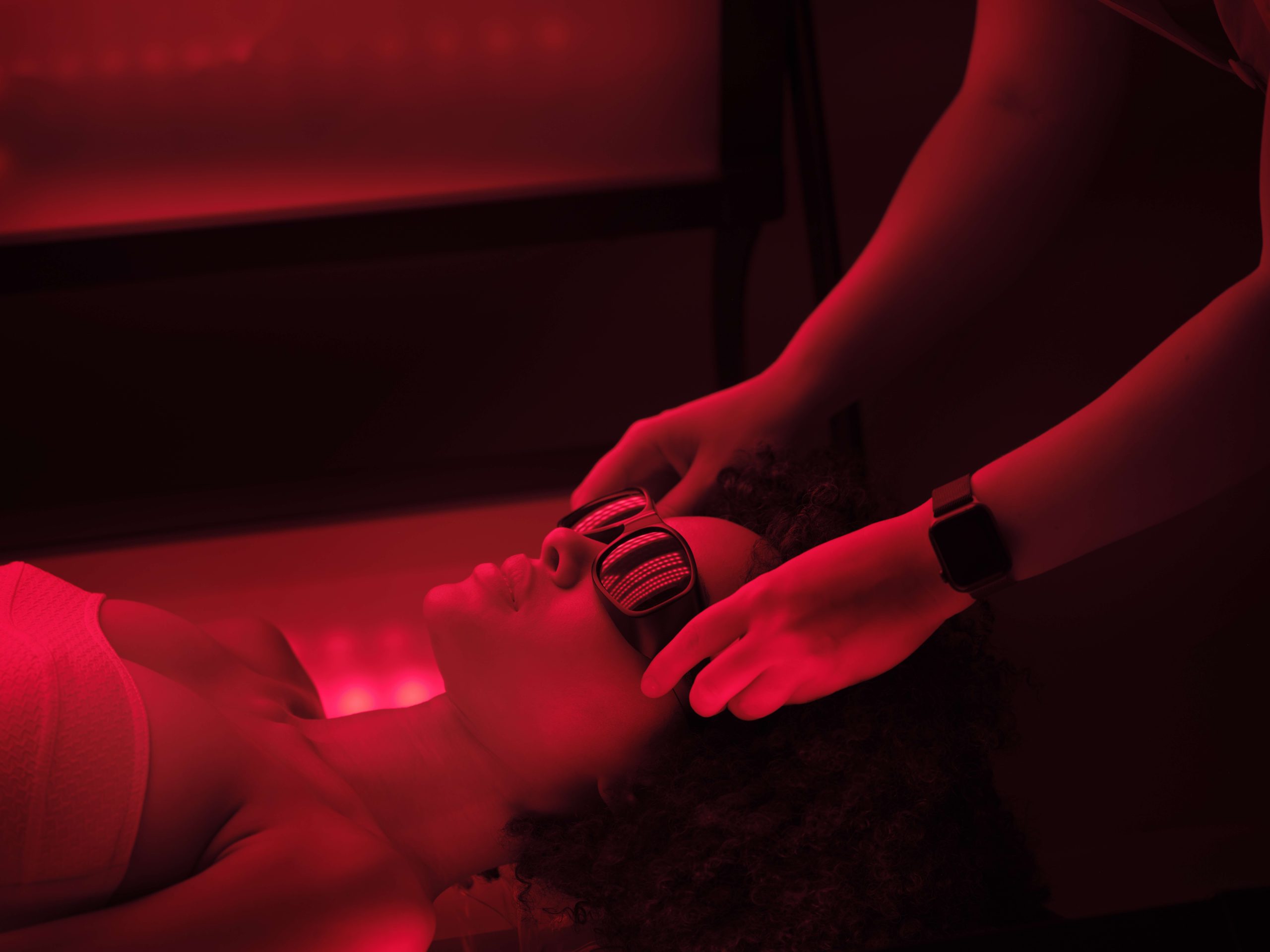Each of us has about 25,000 genes, comprising strands of DNA that code our fundamental characteristics — the genome, which holds the blueprint for how our bodies will develop. But while much of that information is inherited, not all of it is fixed. “80 percent of your health is within your control,” says Dr. George Gaitanos, Chief Operating and Scientific Officer of Chenot Group.
“With your lifestyle, with the choices you make every day, you really can affect the way that your genes are expressing.”
That’s thanks to the epigenome, or the catalogue of chemical compounds that determine which genes get switched on and which get switched off. A person’s habits and environment — where they live, what they eat, how they move, when they sleep — can all influence their epigenome, and therefore, their biology. While “our genes may define our potential and limitations,” Gaitanos adds, “we dictate their performance.”
In the Molecular Lab for Optimal Living at Chenot, our staff uses mRNA technology to glean specific insights into each guest’s genetic profile, and how their lifestyle might affect the way those genes behave. Think of it like playing a piano, Gaitanos proposes: All those genes are laid out like keys, and your daily choices — the chords you play — decide how the music sounds. At Chenot, our goal is to help you tune into that melody, and figure out which are the best notes for you.
What is mRNA?
The DNA in each of our cells contains the genetic information for making proteins, the building blocks of cellular function.
A key player in cellular replication, messenger RNA — mRNA — molecules make single-stranded copies of that code, which tell the new cell what kind of proteins to make and therefore, what kind of cell it will be: bone, muscle, skin, blood, and so forth.
When a gene is expressed, or switched on, a cell makes mRNA corresponding to that gene — how much or how little depends on how active that gene is.
By taking mRNA samples, we can not only gauge how active certain genes are; we can also monitor changes to genetic expression over time, like looking at a snapshot of a person’s biological trajectory.
“The whole idea,” Gaitanos says, “is to see if something is coming to you.”
How does mRNA testing work?
At the beginning of a guest’s stay, our medical staff performs comprehensive genetic analysis from a whole blood sample, using a PCR machine to extract the mRNA.
Within the guest’s panel, “We’re looking for genes which we know from the literature relate to silent inflammation,” Gaitanos explains. “We’re looking for genes which relate to accelerated ageing; we’re looking for genes which are linked to neuroprotection, to your anti-inflammatory and antioxidant defenses, to hormonal responses.”

During the first visit to Chenot, we compare the guest’s profile to our own databases, but if they return, we can begin measuring each new panel against the previous ones.
“You are comparing yourself to yourself,” Gaitanos explains. “By taking these snapshots of cellular activity in the blood, at a molecular level, it reflects real-time activity of genes, offering insights into health, disease states, and responses to treatments.” We can highlight patterns and identify areas of persistent over- or under-activity.
Compared with other methods of epigenetic testing, Dr. Gaitanos explains, mRNA analysis does not present a “static picture,” but a “dynamic picture that is continuously changing.” And those changes, from visit to visit, can give our team “a better understanding of disease mechanisms, health conditions, and personalised medical treatments,” Gaitanos explains. “You can create a kind of guide of how you should be living.”


What can mRNA testing tell us?
In short, how well a guest’s habits serve their long-term health. Say a guest’s panel on their first visit reflects heightened activity among genes associated with inflammation: If, on subsequent visits, that number stays high, we can deduce that the problem is not acute but chronic and therefore merits monitoring.
“Then we can go into the deeper picture to try to find out where it is coming from,” Gaitanos says. While Chenot won’t diagnose a disease, our panels highlight patterns that might help specialists determine where to look for problems. They can also empower a guest to take action — to “take the finger off the piano,” Gaitanos explains, “because now I’m playing a bad note.”
At Chenot, we aim to send guests home with personalised, actionable recommendations to maintain optimal health, drawn from consultations with our medical specialists. “We know that if you exercise, if you eat better, if you respect your circadian rhythms,” Gaitanos says, “you have fewer chances of hitting a bad note.”
A stay at Chenot offers an opportunity to reset our biology across those key metrics, but most of all, it gives “you the power to be proactive rather than reactive,” Gaitanos emphasises, by arming you with information. Implementing targeted lifestyle recommendations, a person might see changes to their genetic activity over time. “We ignite the spark of change,” Gaitanos explains, by motivating guests to embrace healthier habits once they leave. It’s the lessons you take away, the adjustments you make to daily life, that really count. “Because the better you are adapted to the environment, the less impact the environment and lifestyle makes on you.”
يهدف برنامجنا المميز شينو إلى إحداث تنقية عميقة وإزالة السموم من الجسم للتخلص من السموم وزيادة الحيوية وإعادة ضبط مستويات الطاقة وإعادة التوازن الفسيولوجي للجسم.
CHF 5’500
استرخِ عقلك، وأعد تنشيط جسدك – يعمل برنامج Chenot’s Recover & Energize على تقليل التوتر المزمن والإرهاق والتعب ويستعيد مستويات الطاقة المثالية.
CHF 6’400
برنامج شينو الأكثر كثافة لتعزيز الصحة، والذي يجمع بين التخلص من السموم المميز لدينا وتجديد عالي التأثير لتأخير ظهور الشيخوخة البيولوجية.
CHF 7’100



